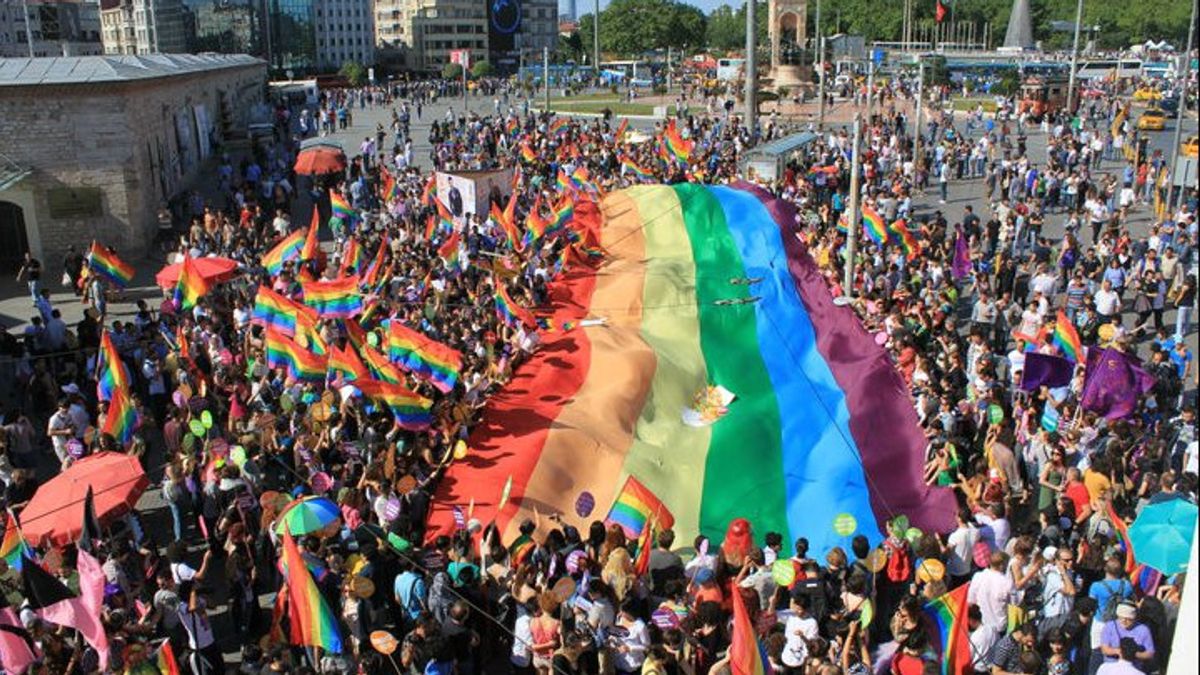JAKARTA - A court in Japan ruled a ban on same-sex marriage was unconstitutional, a setback for LGBTQ rights activists in the only Group of Seven (G7) country that does not allow people of the same sex to marry, Monday.
The ruling dashed activists' hopes of increasing pressure on the central government to address the issue, after a court in Sapporo City in March 2021 ruled in favor of claims that not allowing same-sex marriage was unconstitutional.
Three same-sex couples, two men, and one woman, have filed the case in a district court in Osaka, the second court to hear on the matter in Japan.
In addition to dismissing their claim that being unable to marry is unconstitutional, the court dismissed their demands for 1 million yen in damages for each spouse.
"I actually wonder if the legal system in this country really works," said plaintiff Machi Sakata, who is married to her US citizen partner in the United States, expecting a baby in August.
"I think there is a possibility that this decision really puts us in a corner," said Sakata.
The Japanese constitution defines marriage as based on "the mutual consent of both sexes". But the introduction of partnership rights for same-sex couples in Tokyo last week, along with growing support in opinion polls, has raised the hopes of activists and lawyers for the Osaka case.
Meanwhile, the Osaka Court said marriage was defined only between the opposite sex and there was not enough debate about same-sex marriage taking place in Japanese society.
"We emphasize in this case, we want same-sex couples to have access to the same things as normal couples," said lawyer Akiyoshi Miwa, adding that they would appeal.
You know, Japanese law is considered relatively liberal in some areas by Asian standards, but across the continent only Taiwan has legalized same-sex marriage.
Under current rules in Japan, members of same-sex couples are not allowed to legally marry, cannot inherit each other's assets, such as homes they may share together, nor do they have parental rights over each other's children.
Although partnership certificates issued by some cities help same-sex couples rent a shared property and have hospital visit rights, they do not give them the full legal rights that heterosexual couples enjoy.
Last week, the Tokyo Prefectural Government passed a law to recognize same-sex partnership agreements, meaning local governments that make up more than half of Japan's population are now offering such recognition.
While Prime Minister Fumio Kishida said the matter needed to be considered carefully, the ruling Liberal Democratic Party has said it has no plans to review the matter or propose legislation, although some senior party members support reforms.
VOIR éGALEMENT:
The upcoming case in Tokyo will keep public debate alive on the issue, particularly in the capital, where a poll by the local government late last year found about 70 percent of people support same-sex marriage.
Legalizing same-sex marriage would have far-reaching implications both socially and economically, activists say, and would help attract foreign companies to the world's third-largest economy.
"International companies are reviewing their Asian strategies and LGBTQ inclusivity is becoming a topic," Masa Yanagisawa, chief services chief at Goldman Sachs and board member of the activist group Marriage for Japan, said before the verdict.
"International businesses don't want to invest in locations that are not LGBTQ friendly," he concluded.
The English, Chinese, Japanese, Arabic, and French versions are automatically generated by the AI. So there may still be inaccuracies in translating, please always see Indonesian as our main language. (system supported by DigitalSiber.id)


















